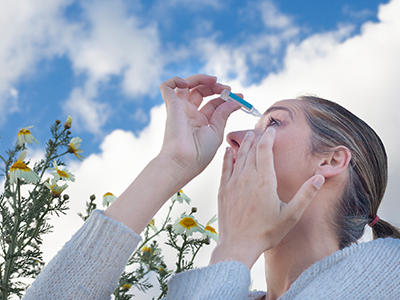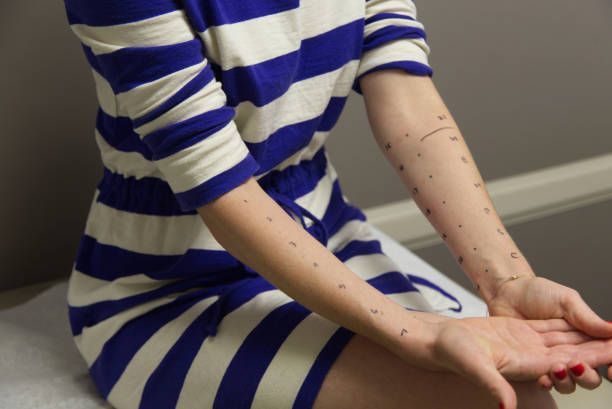Eye Allergies: A Proper Diagnosis Could Save Your Vision

Recent medical surveys have revealed that although eye allergies are relatively common, only about 10 to 20 percent of people who suffer from them ever seek proper treatment. While some types of eye allergies are relatively minor and simply cause uncomfortable symptoms, others are more severe and can lead to vision loss if left untreated.
Read on to learn about several types of eye allergies, the importance of a proper eye allergy diagnosis, and eye allergy treatment options.
Types of Eye Allergies
Doctors can diagnose a variety of eye allergies. Understanding which allergy you have can help you find the best treatment and symptom relief.
The most common type of eye allergy is called allergic conjunctivitis. This type of eye allergy affects only the conjunctiva of the eye. The conjunctiva is a thin membrane that covers the surface of the whites of both eyes and lines the inside of both the top and bottom eyelids.
This is considered a less serious type of eye allergy because the cornea is not affected and the condition rarely leads to serious complications other than eye infections that can occur if itchy eyes are rubbed and scratched too much.
Allergic conjunctivitis can occur alongside seasonal allergies or can flare year-round when you are exposed to other common allergens, such as dust mites.
Giant Papillary Conjunctivitis (GPC)
Giant papillary conjunctivitis (GPC) is another type of eye allergy that can affect anyone, yet is more common in people who wear contact lenses. The hallmark symptoms of GPC are bumps underneath the top eyelid that are larger than 1 mm in size and the sensation of having something in your eye, even when there is no foreign body in it. Additional symptoms of GPC can include eye redness, itching, watering, and/or swelling.
Proper diagnosis and treatment of GPC is very important. If left untreated, GPC can lead to cornea damage if the bumps underneath the eyelid scrape your corneas too much. Your corneas are the dome-shaped portions of your eyes that cover your eyes' iris and pupil, and they have many important functions, although their most important function is to refract light to help you maintain healthy vision.
Vernal Keratoconjunctivitis (VKC) and Atopic Keratoconjunctivitis (AKC)
Two additional types of eye allergies are vernal keratoconjunctivitis (VKC) and atopic keratoconjunctivitis (AKC). While the symptoms of these allergic eye conditions are often very similar to simple allergic conjunctivitis at first, these two types of eye allergies can progress to much more severe stages if left untreated.
Left untreated, both VKC and AKC can lead to serious complications that include eyelid thickening; ptosis, or eyelid drooping; corneal thinning or scarring; cataracts; and vision loss.
AKC typically occurs in people who suffer from atopic dermatitis. In fact, about 25 to 40 percent of all people who suffer from atopic dermatitis also suffer from AKC, according to the American Academy of Ophthalmology.
Eye Allergy Diagnosis & Treatment
The first step to obtaining proper treatment for your eye allergy type is to obtain a proper diagnosis. An allergist will first examine your eyes and ask you questions about your symptoms. They may then perform blood tests, allergy panel tests, or additional onsite eye tests.
If you learn your specific allergens during allergy testing, then you can help improve your eye health and comfort by avoiding the specific allergens whenever possible or opting for immunotherapy treatment that helps your body gradually stop reacting to the allergens.
However, additional treatments in the form of antihistamine eye drops, corticosteroid or mast cell stabilizer eye drops, or oral antihistamines may help combat your eye allergies even further. If you are suffering from a more severe eye allergy, such as AKC or VKC, then eye injections or immunosuppressant medications may be needed to get your symptoms under control.
If you suffer from eye allergies, then a proper diagnosis and treatment could help you get rid of your allergy symptoms for good. A proper diagnosis could also reveal a more severe eye condition that could jeopardize your vision if left untreated. Contact the Allergy and Asthma Clinic of Fort Worthto schedule an eye allergy consultation today.






